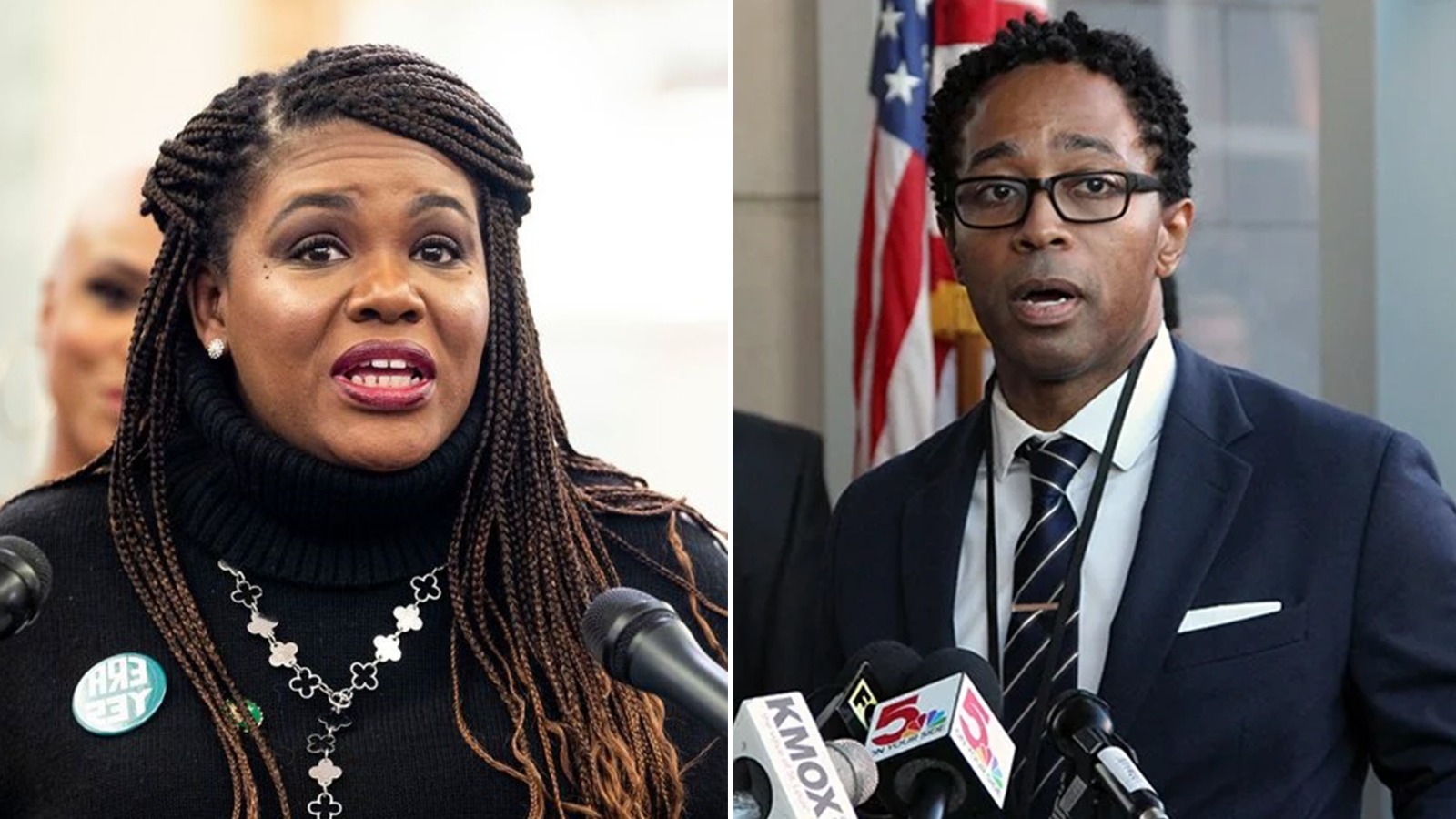A notable figure in Congress known for her progressive advocacy finds herself in a challenging position as she faces a formidable opponent in an upcoming primary election.
Representative Cori Bush (D-MO), a member of the progressive wing often referred to as the “Squad,” is currently trailing St. Louis prosecuting attorney Wesley Bell by a significant margin, as indicated by a recent poll conducted by McLaughlin & Associates for the CCA Action Fund. The survey, which sampled likely voters in Missouri’s 1st Congressional District Democratic Primary scheduled for August 6, reveals Bush with 33% support, while Bell leads with 56%. This gap underscores the critical nature of the primary race for Bush, whose tenure in Congress has been marked by her outspoken advocacy for progressive causes and social justice.
Despite her national prominence within the “Squad,” a group that includes Representatives Alexandria Ocasio-Cortez (D-NY), Ilhan Omar (D-MN), Ayanna Pressley (D-MA), and Rashida Tlaib (D-MI), Bush appears to be facing challenges in maintaining strong local support. The survey further details that Bush, a two-term incumbent, holds a 50% favorability rating among registered Democrats, with 47% viewing her unfavorably. Moreover, 51% of Democrats disapprove of her job performance, contrasting with 46% who approve.
In contrast, Wesley Bell enjoys a notably higher favorability rating, with 70% of respondents viewing him favorably and only 18% unfavorably. Pollsters emphasize that Bush’s comparatively high negative ratings among her Democratic constituents pose a significant obstacle in her bid for re-election.
The survey, conducted from June 28 to July 1, engaged 300 likely Democratic voters through a combination of phone interviews and text messages, with a margin of error of plus or minus 5.7 percentage points. These findings have sparked discussions within political circles about the dynamics of progressive politics in Missouri and the broader implications for the Democratic Party’s ideological spectrum.
Marc Little, a spokesperson for the anti-Bush CCA Action Fund, a Super PAC, voiced criticism of Bush’s congressional record, accusing her of prioritizing personal fame over the interests of her constituents. “Cori Bush has squandered her time in Congress focusing on her celebrity within ‘The Squad,’ while neglecting the needs of her community,” Little remarked. He pointed to the poll results as evidence that voters in St. Louis are seeking a representative who will actively champion local prosperity, safety, and defend American values, contrasting this with what he characterizes as Bush’s divisive agenda.
Bush has recently faced scrutiny for her outspoken views on international issues, particularly regarding the Israel-Hamas conflict. Reflecting her progressive stance, Bush has been vocal in condemning Israel’s actions in Gaza, advocating for an end to what she describes as the oppression of Palestinians. She has further called for the United States to cease military aid to Israel, arguing that such support enables human rights violations.
The political landscape in Congress has shown recent shifts, with other progressive members facing electoral challenges. In a notable parallel, Representative Jamaal Bowman (D-NY), aligned with the Progressive Caucus, recently lost his primary to a moderate challenger amid a contentious race. Bowman had aligned himself with the “ceasefire now” movement, which advocated for ending hostilities in Gaza and accused Israel of complicity in genocide. The primary election, which became one of the most expensive House races in history, saw significant financial investments from both local and national stakeholders.
The campaign between Bowman and his opponent, Westchester County Executive George Latimer, attracted more than $25 million in spending, with approximately $15 million contributed by the United Democracy Project, a super PAC associated with the influential American Israel Public Affairs Committee (AIPAC), which backed Latimer.
As the primary election for Missouri’s 1st Congressional District approaches, the race between Cori Bush and Wesley Bell continues to draw attention for its potential to shape the future direction of progressive politics within the Democratic Party. With contrasting visions and priorities, the outcome of this election will likely influence discussions on issues ranging from domestic policy to international relations, reflecting broader debates within the party and the electorate at large.
